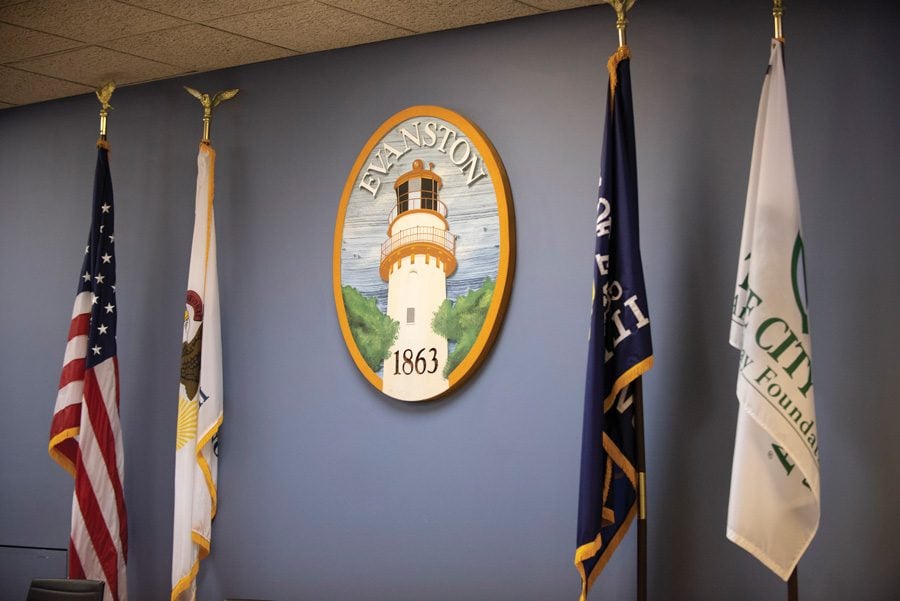Ethics ordinance would shorten board term limits, appoint special counsel
Daily file photo by Colin Boyle
Evanston’s symbol. City Council will vote on Nov. 11 on whether to approve an ordinance revising the city’s ethics code.
October 31, 2019
The city’s proposed ethics code will appoint a special counsel for the Board of Ethics and shorten term lengths for board members.
City Council introduced the ordinance Monday. The proposal is a total rewrite of Evanston’s ethics code and contains significant modifications to the operations and organization of the Board of Ethics, the independent committee charged with upholding the code. The Ethics Subcommittee of the Rules Committee, a now-dissolved group comprised mostly of aldermen, drafted the new ethics code. The ordinance has faced subsequent revision from the Rules Committee on Oct. 7.
The code was last updated in 2007, with minor amendments made in accordance with amendments to the City Code in 2012 and the dissolution of Evanston Township in 2014.
The new ordinance creates a new role in the administration of the Board of Ethics. According to the proposal, a “special counsel” will receive all complaints and determine with the chair of the Board of Ethics committee which ones fall under the board’s jurisdiction.
Ald. Donald Wilson (4th) said the position will replace a role previously fulfilled by city attorneys, who could find themselves in a conflict of interest in proceedings.
“This is a way to take that out of the equation and have a more independent person in the role,” Wilson said.
The special counsel can also initiate an ethics investigation on their own volition with approval from the board chair.
The ordinance specifies that the special counsel must be a licensed member of the Illinois State Bar Association and demonstrate “relevant experience” for the role. The city manager’s office will administer the position as an independent contractor. Unlike board members, the role has no stated term limit.
The ordinance also shortens the term lengths for members on the Board of Ethics from three years to two. Language in the ordinance also suggested board members would only be able to serve one term. When asked about this restriction, Wilson said he would revisit the portion of the ordinance, though he did not confirm whether this was the intent of the board.
An earlier draft of the ordinance that reduced terms to only one year made its way as far as the Rules Committee before Ald. Eleanor Revelle (7th) led to the creation of the current term limit. Revelle pointed to the expertise required to become an effective board member and suggested shorter term limits would leave board members susceptible to vengeful elected officials.
“They could rule one way on a particular member and then find that wasn’t particularly popular and so they won’t be reappointed next year,” Revelle said at the Oct. 7 meeting.
The ordinance also amends a loophole that allowed city
officials to influence their own ethics violations. Ald. Ann Rainey (8th) blocked possible censure by casting a tie-breaking decision on her own ethics violations in a December vote.
The new ordinance bars aldermen, ethics board members and the city manager from “all participation directly or indirectly” in the complaint process if they are the subject of the complaint. In cases where an elected official is the subject of the violation, the mayor will take their place.
Members of the Board of Ethics expressed criticism of the process behind the new ethics code, arguing they would be better suited to revise it. In response to an early draft, the board produced a heavily annotated revision to the proposal that was also submitted to the Rules Committee.
Aldermen did not discuss the board’s proposal publically, though Wilson told The Daily in September some of the board’s suggestions were included in the ordinance draft submitted to the Rules Committee.
City Council will vote on the ordinance at the Nov. 11 meeting.
Email: [email protected]
Twitter: @maybejoshirvine


